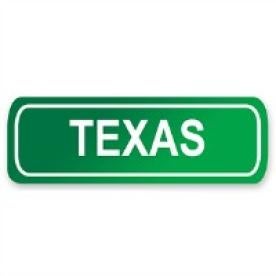The 2016 year has been a challenging one for gaming in Texas. Horse-racing, gaming rooms, charity bingo, and the Ysleta del Sur Pueblo tribe have all been at the forefront of this year’s challenges.
 Horse-racing: Texas’s big race parks were ordered to close for a day after a dispute between the Texas Legislature and the Texas Racing Commission (TRC) over contentious “instant racing” rules that would have authorized gambling on electronic simulations of historical races on devices resembling slot machines. Afraid that this type of gambling would lead to casino-style gambling in the state, a group of legislators were successful in causing the Legislature to miss its deadline to renew funding for the TRC. Ultimately, the TRC was forced to scrap the “instant racing” rules, and traditional horse racing came back on track.
Horse-racing: Texas’s big race parks were ordered to close for a day after a dispute between the Texas Legislature and the Texas Racing Commission (TRC) over contentious “instant racing” rules that would have authorized gambling on electronic simulations of historical races on devices resembling slot machines. Afraid that this type of gambling would lead to casino-style gambling in the state, a group of legislators were successful in causing the Legislature to miss its deadline to renew funding for the TRC. Ultimately, the TRC was forced to scrap the “instant racing” rules, and traditional horse racing came back on track.
Gaming rooms have also remained an issue in the state this year. In several areas of the state, gaming rooms, mostly associated with eight-line gaming, have opened, only to be closed or threatened with closure.
Even charity bingo has not escaped the pressure. This year, the Texas Lottery Commission has made efforts to pull the licenses of bingo operators who fail to actually make money for charity. Charity bingo was first created in the state in 1980, but has been declining in popularity in recent years.
Finally, the Ysleta del Sur Pueblo tribe has been back in court this year. The tribe opened its Speaking Rock Casino and Entertainment Center in El Paso in 1993, initially as a bingo hall but soon thereafter offering Class III gaming. In 2001, the State of Texas obtained an injunction in federal court shutting down the operation based upon the Restoration Act and the Texas Penal Code. In November, 2015, the tribe moved the federal court to lift the injunction based upon findings by the U.S. Department of the Interior and the National Indian Gaming Commission affirming federal jurisdiction over the tribe’s gaming under the Indian Gaming Regulatory Act (IGRA) rather than the Restoration Act.
In a lengthy order issued on May 27, 2016, the court rejected the tribe’s motion to vacate the injunction. The court declined to defer to the federal agencies’ interpretations of the statutes for several reasons, including because the agencies were attempting to interpret statutes that they do not, in fact, administer. Instead of relying upon the agencies’ interpretations, the court concluded that it was bound by the Fifth Circuit authority holding that the Restoration Act rather than IGRA governs what gaming activities may be conducted by the tribe. Under the Restoration Act, the tribe is barred from conducting gaming that is otherwise prohibited under Texas state law.
Though the court upheld the effect of the injunction and the applicability of the Restoration Act as the governing law, it did rule in favor of the tribe in other regards. In particular, the court eliminated the requirement for the tribe to obtain “pre-approval” of any proposed gaming activities, holding instead that the parties must follow the procedure set forth in the Restoration Act pursuant to which the state is authorized to seek relief in federal court for alleged violations by the tribe. Further, the court eliminated the injunction’s provision giving the state monthly access to inspect the tribe’s gaming facilities and records.
Finally, the court took up a pending motion for contempt that had been filed by the state with respect to sweepstakes conducted by the tribe. The court found that the sweepstakes violates state law and the Restoration Act because the purpose of the transaction is to promote the game itself rather than a legitimate product. Thus, the tribe was ordered to cease the sweepstakes or face a substantial daily penalty.
The court’s May 2016 order did not put an end to the disputes between the state and the tribe. In August, the state filed a motion to hold the tribe in contempt for conducting fully automated electronic bingo at its casino. And in late September, the state moved the court to compel a physical inspection of the tribe’s gambling facility to determine whether the tribe is conducting any illegal forms of gambling. The parties have filed opposing memoranda arguing over whether the state’s motions are proper procedurally and whether, under the terms of the court’s May order, the state is required to file a new lawsuit to make its claims. However, the court has not yet ruled on these motions. Thus, it appears that the fifteen-year battle between the tribe and the state will continue into 2017.
The new year should be an interesting time in the Texas gaming arena, as these issues are challenged before the court.




 />i
/>i
